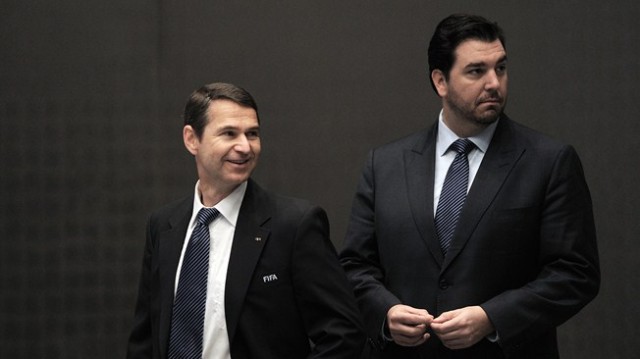With a national workshop in Colombia and a regional workshop in Algeria, FIFA’s Security Division has brought its workshop activities to a close for 2013, and FIFA Director of Security Ralf Mutschke has drawn positive conclusions.
Match manipulation is a worldwide and omnipresent issue, as proven by the most recent case in Austria, as well as by the headlines regarding worldwide bans imposed on players from El Salvador and Ukraine, or the fact that the independent FIFA Ethics Committee has taken over investigations in South Africa. “We are seeing more and more positive reactions,” says FIFA Director of Security Ralf Mutschke. “The first signs of success are beginning to appear. People are contacting us.”
So far, 145 member associations have been involved at various levels of FIFA’s integrity initiative in cooperation with INTERPOL. This year, the FIFA Disciplinary Committee has extended 267 sanctions imposed by member associations to have worldwide effect. “We are also receiving more quality reports via our hotline,” continues Mutschke. “We will only have sustainable success if it becomes the rule that players and officials report attempts by the world of organised crime to recruit them.”
For the first time, the workshop in Colombia also focused on the concept of PDM (Partnership Development Meeting) to discuss building a partnership based on confidentiality. After the workshop, representatives of football, the police, betting authorities and politics talked about cooperation and defined contact persons. At the same time as the workshop in Colombia, another workshop – also organised by the FIFA Security Division – was held for the French-speaking countries of North Africa. The PDM concept was also used in Algeria. These two workshops were the final two to be held in 2013, with the next to be held in India in January. “Our goal is to ensure that 90% of our associations are involved in the initiative by the end of next year,” says Mutschke. “All stakeholders will have to step up their commitment next year, and that includes FIFA.”
Prevention is at the very heart of the work undertaken as part of the FIFA-INTERPOL integrity initiative. “We train and educate together with the associations. We provide the associations with our expertise through our e-training programme or train-the-trainer courses, but the associations then have to disseminate that knowledge. Our instructors are very committed,” explains Mutschke. “We have to get academies involved too, as there are no age limits to prevention. We can’t make selections based on region or age, and then react differently to that specific target group. It is important that everyone is on board.”
Mutschke also praised the cooperation with associations and confederations, and specifically mentioned the example of Austria, where match manipulation and blackmail has hit the headlines in recent weeks. “At the start of the year we held an integrity workshop in Vienna, where there is an association to protect integrity in sport. Thomas Hollerer, the Director of Legal Affairs and Administration at the Austrian FA, is doing a good job and we are also in regular contact,” says Mutschke, who mentioned that the Austrian example also revealed a problem in the fight against match manipulation. “Cooperation between criminal authorities and sports law authorities can sometimes be difficult because of data protection laws. The Austrian FA has, however, established good connections with the police, and they work together as much as they can in a spirit of trust.”
FIFA.com News
Support InfoStride News' Credible Journalism: Only credible journalism can guarantee a fair, accountable and transparent society, including democracy and government. It involves a lot of efforts and money. We need your support. Click here to Donate

 © Foto-net
© Foto-net